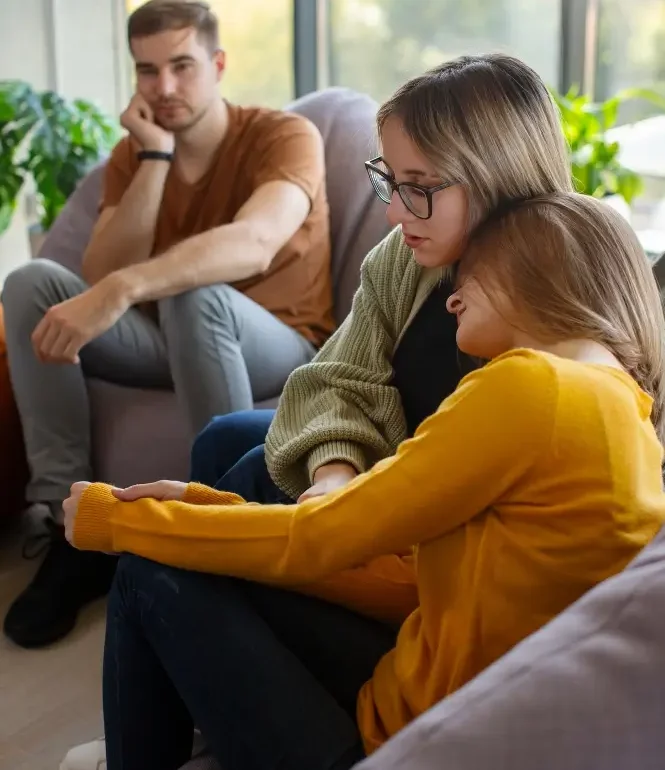Marriage Therapist Vancouver
Marriage Counselling Vancouver
Marriage counselling, also known as marital therapy, is an incredibly valuable resource for couples who are looking to improve their relationship. It is a type of psychotherapy that is specifically designed to address the unique challenges that can arise within a marriage. Whether a couple is facing serious issues or simply wants to strengthen their bond, marriage counselling can provide the necessary tools and guidance to help them achieve their goals.
Marriage counselling is a powerful tool for couples who wish to improve their relationship. Whether they are facing serious challenges or simply want to enhance their connection, marriage counselling provides the necessary support and guidance to achieve these goals. By addressing issues such as communication breakdowns, conflict resolution, and strengthening the marital bond, couples can experience a deeper level of understanding, love, and fulfillment in their marriage. So, if you are looking to enhance your relationship with your partner, don’t hesitate to seek the services of a qualified marriage counselor. Your journey towards a happier and healthier relationship begins with that first step.
Process of Marriage Counselling
- Initial Assessment: The therapist meets with the couple to understand their relationship dynamics, issues, and goals.
- Goal Setting: The couple and therapist set specific, measurable goals for the therapy.
- Therapeutic Interventions: Regular sessions using various techniques to address issues.
- Progress Evaluation: Periodically assessing progress and making necessary adjustments.
- Termination: Ending the therapy once goals are achieved or when the couple is ready to handle issues on their own.
Benefits of Marital Counselling in Vancouver
- Better Communication: Couples learn to express themselves more effectively.
- Enhanced Understanding: Partners gain a deeper understanding of each other’s needs and perspectives.
- Conflict Management: Improved skills to manage and resolve conflicts constructively.
- Increased Intimacy: Strengthened emotional and physical connection.
- Stronger Relationship: Overall improvement in relationship satisfaction and stability.
One of the main focuses of marriage counselling is to enhance communication between partners. Communication is the foundation of any successful relationship, and when it breaks down, it can lead to misunderstandings, resentment, and conflict. Marriage counselling provides a safe and supportive environment for couples to express their thoughts and feelings, and learn effective communication techniques. Through open and honest dialogue, couples can improve their ability to understand each other’s perspectives and find common ground.
Another important aspect of marital counselling is conflict resolution. Every relationship experiences disagreements and conflicts from time to time, but how couples handle these conflicts can make all the difference. In marriage counselling sessions, couples are guided through techniques and strategies for resolving conflicts in a healthy and constructive manner. They learn how to listen actively, express their needs and concerns without blame or criticism, and work together towards finding mutually satisfactory solutions. By learning these skills, couples can avoid escalating conflicts and instead find resolutions that are fair and beneficial for both parties.
Marital Counselling near me
Furthermore, marriage counselling aims to strengthen the marital bond between partners. Over time, it is common for couples to feel disconnected or distant from each other due to various factors such as work stress, raising children, or lack of quality time together. Marriage counselling provides an opportunity for couples to reconnect and rekindle their love and affection for each other. Through various exercises and activities, partners can rediscover what initially attracted them to each other and learn ways to nurture their emotional connection. By focusing on the positive aspects of their relationship and building on their strengths, couples can rebuild trust, intimacy, and passion in their marriage.
Here’s an overview of what marriage counselling entails:
Objectives of Marriage Counselling
Improve Communication: Help couples develop healthier ways to express their needs, feelings, and concerns.
Resolve Conflicts: Provide strategies for managing and resolving disputes constructively.
Rebuild Trust: Assist couples in rebuilding trust after breaches such as infidelity or deception.
Enhance Intimacy: Work on emotional and physical intimacy issues to strengthen the bond.
Identify Negative Patterns: Recognize and change detrimental patterns of behavior and interaction.
Set Goals: Help couples set realistic goals for their relationship and work towards achieving them.
Common Issues Addressed
Communication Problems: Misunderstandings, not listening, or inability to express feelings.
Infidelity: Dealing with the aftermath of cheating and rebuilding trust.
Financial Disputes: Managing money and financial stress.
Parenting Conflicts: Differing views on raising children.
Sexual Issues: Problems with intimacy and sexual satisfaction.
Life Transitions: Coping with significant changes like moving, job loss, or retirement.
Emotional Distance: Feeling disconnected or growing apart.
Techniques Used in Marriage Counselling
Emotionally Focused Therapy (EFT): Focuses on improving emotional bonds and attachment within the marriage.
Cognitive Behavioral Therapy (CBT): Addresses negative thought patterns and behaviors affecting the marriage.
Gottman Method: Based on research, it uses specific tools and exercises to enhance marital stability and satisfaction.
Imago Relationship Therapy: Aims to transform conflict into opportunities for healing and growth.
Solution-Focused Therapy: Emphasizes solutions and goals rather than dwelling on problems.
Considerations for Marriage Counselling
Willingness to Participate: Both partners need to be willing to participate and work on the relationship.
Commitment: It requires time, effort, and a commitment to the process.
Choosing a Therapist: Finding a qualified and experienced therapist who both partners feel comfortable with is crucial.







